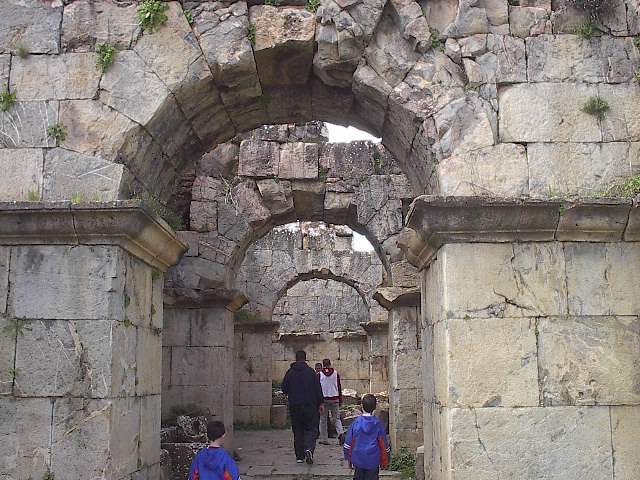Elderly Poverty Among Algerian Migrant Workers
 Abdelkader Bounaga, an Algerian pensioner living in Marseille, was “enlisted” in the 1960s to fill the labor deficit in post-war France. He arrived in Marseille in a wooden boat carrying French soldiers being repatriated after Algeria’s independence. He is in the “Chibanis” group, meaning “grey-haired” in Arabic. Elderly Poverty in Algeria could deteriorate due to demographic changes. In 1966, the ratio of people at working age to people at retirement age was 6.7:1. In 2008, the ratio rose to 8:1, but in 2021 it fell again to below 6:1. This means that more old people are relying on the support of their employed family members today that in 1960.
Abdelkader Bounaga, an Algerian pensioner living in Marseille, was “enlisted” in the 1960s to fill the labor deficit in post-war France. He arrived in Marseille in a wooden boat carrying French soldiers being repatriated after Algeria’s independence. He is in the “Chibanis” group, meaning “grey-haired” in Arabic. Elderly Poverty in Algeria could deteriorate due to demographic changes. In 1966, the ratio of people at working age to people at retirement age was 6.7:1. In 2008, the ratio rose to 8:1, but in 2021 it fell again to below 6:1. This means that more old people are relying on the support of their employed family members today that in 1960.
Therefore, elderly poverty in Algeria could worsen as the demography changes over the coming years. However, the Chibanis who left Algeria in the 1970s looking for a more stable income face the additional challenge of isolation. Tahar Ben Jelloun expresses a common sentiment when he calls the state of the Chibanis “the highest solitude.” Here is more information about Algerian migrant workers in France.
Immigration to France
Poverty in Algeria was one of the reasons for immigration to France in the 1960s. French colonialism in the region had left the natives in a worse position. With the appropriation of land and exploitation of labor, it was hard to earn a living in Algeria.
In general in France, poverty rates decrease with age, dropping to 10% of people over 65. On the other hand, the poverty rate among elderly migrants in Europe is much higher at 25%. Among the migrant population, elderly poverty has increased by 4%, whereas for their native-born counterparts, it has decreased. Accommodation for elderly people has improved over the last few years, but elderly migrants are more likely to live in substandard housing.
Rather than relying on their younger family members, Chibanis often continue to support their families back home in Algeria using their pensions and social benefits. With their families back home and little community or purpose in France, the Chibanis become stuck in perpetual exile. This is what the sociologist Malek Sayad calls the “double absence.” Absent at home, they miss out on key milestones with their families. Absent in France, they struggle to integrate or form a community, and their language skills fall behind.
In addition to the solitude of their lifestyles, the Chibanis did not find the economic prosperity in France that they hoped for. When they arrived in the 1960s, the work available was arduous and menial, paying as little as 80 cents per hour. Today’s Chibanis were the hands that built the roads, factories and school buildings of modern France. Yet, many experience elderly poverty due to the difficulty in obtaining their pensions.
French Bureaucracy
The complex French bureaucracy standing between them and their pensions is hard to navigate for people whose language and literacy skills are low. If a Chibani mistakes the month on which he or she left France for Algeria, and accidentally stays too long, they return to huge debts. If they exceed the six-month limit, the government revokes their benefits and demands a refund of the amount paid.
Movement between France and Algeria has been commonplace since France’s colonization in 1830. Algerians, especially from the impoverished area of Kabylia, emigrated to France to do the hardest and lowest-paid jobs, according to Musée de l’histoire de l’immigration. This was a method for active young men to support their families back home. The influx of cheap labor suited the managerial class, who also used them to break workers’ strikes.
Raising Concerns
Concern about the elderly poverty of Algerian migrant workers spread in France in the early 2000s. One article cites the 2007 film Indigènes as a catalyst for public engagement with the question of the treatment of foreign veterans. That year Rachid Bouzidi, a special adviser for the Employment, Social Cohesion and Housing Ministry, stated “We believe that everyone has the right to live with their family in a decent and dignified way,” according to Radboud Repository article.
However, the Chibanis have experienced several years of precarious social status due to their migratory lifestyle between France and Algeria. They must reside in France to keep their benefits, but their homes and families are overseas.
Activists like Zohra Hamani fight for the visibility and security of Chibanis. President of the charity Les Bons Samaritains Fisabillillah, Hamani said to Al Jazeera.: “We owe all these beautiful French cities to the Chibanis.” Les Bons Samaritains Fisibillillah provides a free breakfast every morning at the centre, which is followed by the opportunity to receive legal and health advice.
Conclusion
Algerian migrant workers living in France are more likely to live in poverty and face the additional challenge of isolation from their communities back home. The French government’s six month stipulation forces these elderly people into isolation and estrangement. However, there are charitable organizations fighting to amplify their voices and rectify the neglect of the French government.
– Io Oswald
Io is based in Paris, France and focuses on Politics for The Borgen Project.
Photo: Flickr
